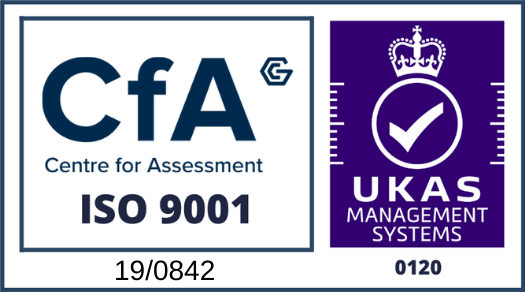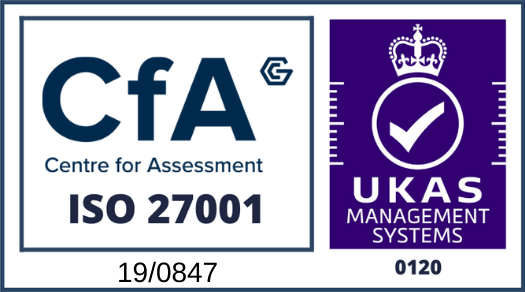If you’re in the process of incorporating new technologies into your construction company and are ready to select a supplier for the project then you’ll know the importance of evaluating options thoroughly.
This stage is critical to get right, as the solutions provider you ultimately choose will become a partner that you need to trust to deliver transformational technologies on time and within budget.
And the stakes increase when the new digital application, analytics tool or bespoke hardware requires significant investment and a long-term relationship due to its complexity and/or scale.
There are a few challenges that may arise at this evaluation stage. Namely, ambiguity on the solutions a provider can offer, undefined deliverables making it difficult to compare suppliers, budget constraints or supplier vagueness on business health.
Allocating the time to carefully compare multiple suppliers will ensure you select the best construction-technology partner for the job – and reduce the potential of post-purchase regret. Here we detail some different areas to appraise, and provide a downloadable matrix to use as an evaluation starting point.
Areas to Evaluate
Every project is different, and supplier requirements vary. However, here are a few key areas to assess a supplier on:
Technologies & Skills
Ensure the underlying technology stack is scalable, proven and well adopted by industry. Poor technology choices can result in systems unable to cope with growth or change; as a result of technical limitations and, when the technology that is outdated or not widely used, difficulty finding people with the necessary skills. Review what parts of the project are going to be out-of-the-box and which parts are going to be tailored, what the licencing restrictions are for products, and what the ongoing support and maintenance costs will be for bespoke components.
Beyond technology choice, ensure the people implementing the technology have the correct skillsets. Your supplier should also be able to demonstrate a mature and robust set of processes and standards for the development, integration, testing, training and rollout of your solution.
Shared Ownership
With technology projects requiring ongoing analysis and processing of feedback, it is important that any supplier is committed to a shared vision of success is and willing to engage collaboratively throughout the project. The project team must operate as a single unit, ensuring that internal and external teams do not become siloed. A good supplier will perform the tasks specified, a great supplier will help you shape and define your project, focused on meeting your overall business goals.
Track Record & Experience
Whether you are looking to implement new software to enhance your field productivity and track activity in real time, or a new ERP system that boosts back-office efficiency, your supplier should be able to demonstrate relevant experience. This does not necessarily need to be a exact match of your project, it could even be from a completely different sector, but you should validate the capability of delivering similar sized projects, with similar project team and stakeholder setups. Seek proof in case studies, references and speak to their existing customers.
Transparency & Accessibility
Before starting any project, make sure you and your supplier have a shared understanding of how progress, risks and issues will be captured and managed throughout the project. Ensure you supplier can provide various metrics and KPIs suitable for all stakeholders, for example, someone directly engaged may want to see daily burndown of tasks, whereas a project sponsor may want to review overall progress against budget. Agree the frequency and tools used for both formal and information communication and collaboration.
Role Definitions
Often project failure is the result of a lack of ownership, rather than a lack of capability. Once executive sponsorship has been achieved and you have established and allocated the appropriate resources, in people and budget, project roles should be defined with expectations from your project team as well as the suppliers. Your supplier should establish clear roles and responsibilities in terms of ownership in order to know which members are allocated to make decisions such as scope, budget and time, as well as prioritising project tasks according to business value and ROI.
Risk Management
Assess risk in terms of infrastructure and culture. Suppliers should present a clear and robust process for identifying, tracking, mitigating and solving risks prior, throughout and going forward around your digital project. Your supplier should plan for all of the variables in a complex project in advance to mitigate risk; as well as suggest a suitable approach to delivery in order to factor in the potential uncovering of unidentified risks that you may not be aware of at initial stages.
Change Management
Change is inevitable in every project, whether this is be a change as a result of a product prototype, a change in the marketplace, or a change in your business processes. Your supplier should provide an effective change process, ensuring that unforeseen circumstances such as unpredicted complexities, process or business change, or integration with 3rd parties, are effectively managed and delivered. Suppliers should display how they will ensure that these will not impact the end solution, including the defined timescales and budget.
Pricing
Suppliers should offer different pricing approaches to suit your project. For example, time and materials compared to fixed budget. If you are happy that there is still a large degree of analysis required, which may often be the case in an MVP stage of a project, a time and materials approach may be the most suitable. However, if you have a clearly defined project scope, a fixed budget approach is often favoured to ensure a commitment to deliverable technology. Make sure you understand what your supplier is delivering as part of the project budget; e.g. build & deploy, early-release support, ongoing support, changes, documentation, training, etc.
Innovation
Investing in innovation helps you in keep ahead of your competition, both in terms of how you deliver your products and services to customers, and how you manage processes internally. Identify opportunities to harness your suppliers skills and experience in areas of emerging technology. Suppliers should provide you with guidance in new areas of innovation, whilst helping you avoid innovating for the sake of innovation and selecting technologies that are not yet stable enough for use. Your supplier should be able to provide a roadmap for delivering innovation, through proof-of-concepts and prototyping to minimum viable product (MVP) releases.
Project vs Relationship
Ensure your engagement models are aligned. Have open conversations about the type of engagement you are looking for and whether this will work with the suppliers way of working. If your project isn't planned to be continuously improved, ensure the supplier has, and makes clear, adequate processes for ongoing support. If you are looking to establish a long term partnership with a supplier, either further enhancing your project or collaborating on other technology projects, ensure the supplier has this track record. Alternatively, if you are planning to move the project in-house during, or at the end of the project, ensure the supplier has experience with this type of handover.
Culture
A cultural fit is hard to define, but it’s obvious when it’s lacking. Your supplier needs to be aligned to your company’s core values, attitudes and culture. Pull together a ‘values’ checklist for what you consider is important in a supplier before assessing options to make certain you’re speaking to the right providers from the outset. These values should be centred around project delivery, matching your favoured approaches, such as collaboration or transparency, to ensure project success.
Future
Technology solutions should have the ability to scale and adapt in line with your organisation and growth plans, rather than being a reactive solution to a singular issue. Ensure that the solution is delivered using industry standard, future-proof technologies, alongside an effective approach to planning and architecture. This will ensure that your system has the ability to be scaled up and adapted without losing quality or requiring redevelopment, especially when managing business-critical services. Aspects such as integration should be considered, for example if you are initially developing a standalone application, there should be an ability to integrate with other systems moving forward through the use of APIs.
Project Management
As agile has replaced traditional waterfall approaches as the standard project methodology of choice in most technology projects, strong project management is critical, as product features often evolve and adapt based on feedback throughout the project. Suppliers will have differing approaches to delivering your project, analyse this to ensure the supplier aligns with your goals and team setup. You can analyse different elements that are priorities for you, for example: how are problems escalated; how fixed is the scope of work; is there room for flexibility within the project.
Timescales
It’s important to be clear on timescales for project delivery. Does the supplier agree with your defined project milestones and different stages of the project? For example, your first milestone could be starting with an MVP to validate initial visions of a software product or ensure feasibility of high risk technical features, or alternatively, simply moving one business function onto a new software platform. Suppliers should ensure that key stages are defined and appropriately aligned with your timescales, budget and core requirements; offering options to gain the maximum output.
Scoring a Supplier
Using a scoring system to grade multiple suppliers helps to streamline the process. A weighted scoring system will help evaluate trade-offs, explore alternatives and quantify investment. For example, you might prioritise cost over experience, and you might deem cultural fit more important than approach.
Essentially, this is applying a numerical score to each assessment area and tallying the total.
There are different ways to score, and each construction firm will use varying percentage weightings per area depending on what is most important to them.
Evaluate Methodically
Recent research has found that an average B2B buying group involves six to 10 decision makers. With this number of people involved, it’s important to use a standardised process and system to compare multiple suppliers in like-for-like areas.
Utilising the same checklist or matrix scoring system will help the supplier selection process run smoother and enable a balanced and unbiased assessment.
Download a Supplier Evaluation Matrix
Identifying the best technology partner to undertake your construction company’s digital upgrade involves methodically scoring every option and tracking against key areas. This will ensure you procure the most appropriate supplier to deliver a cost effective, quality service.
Download our supplier evaluation matrix here to help you assess multiple technology solutions providers.


